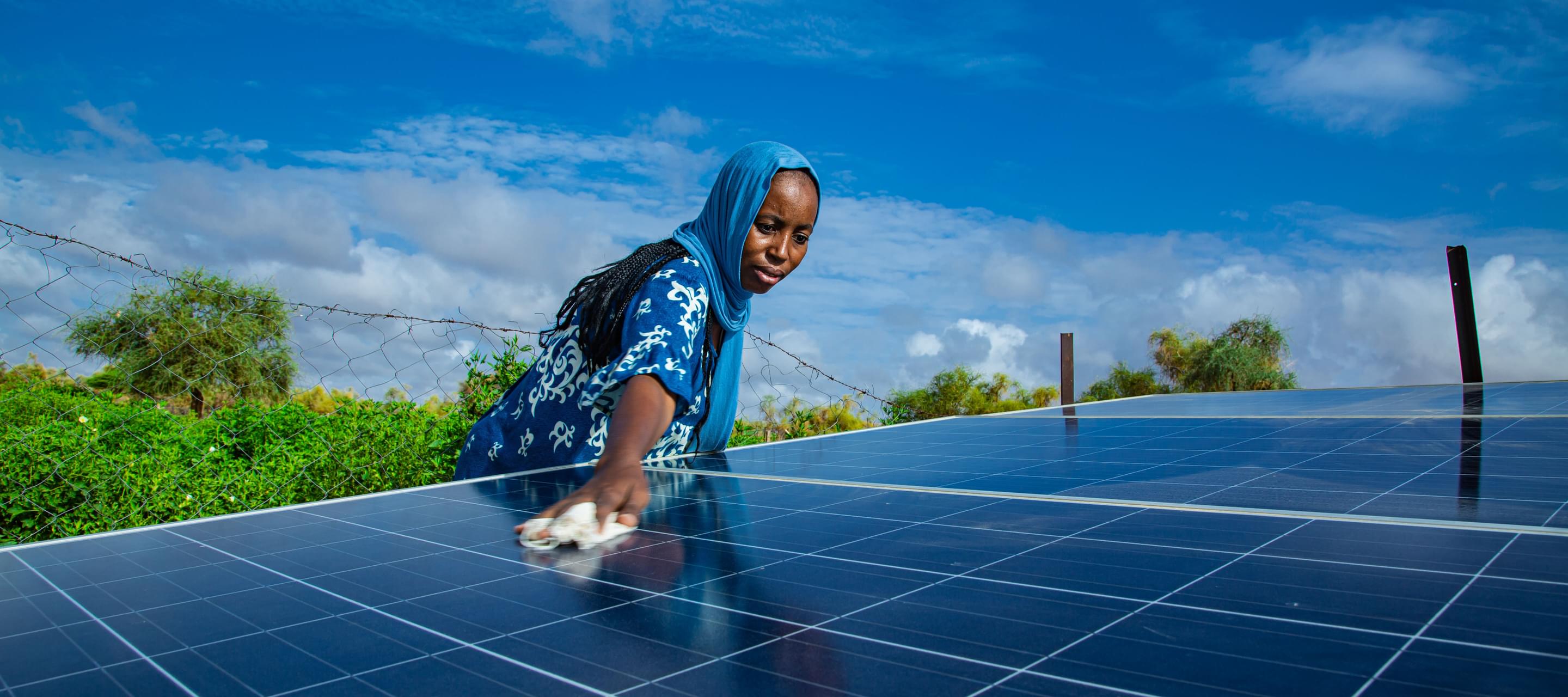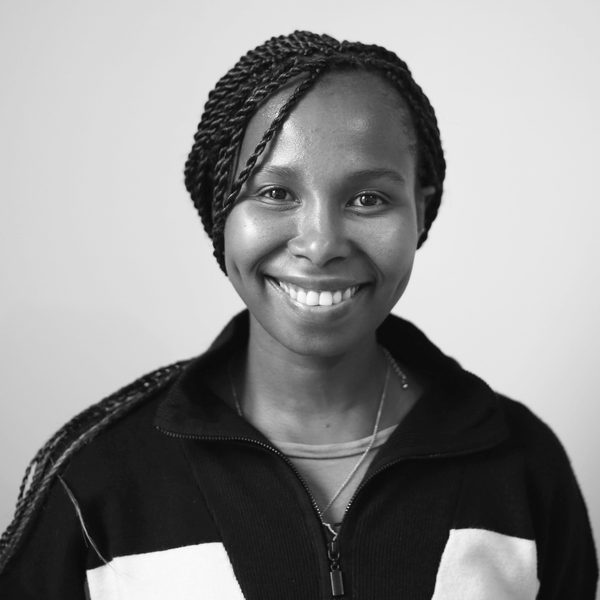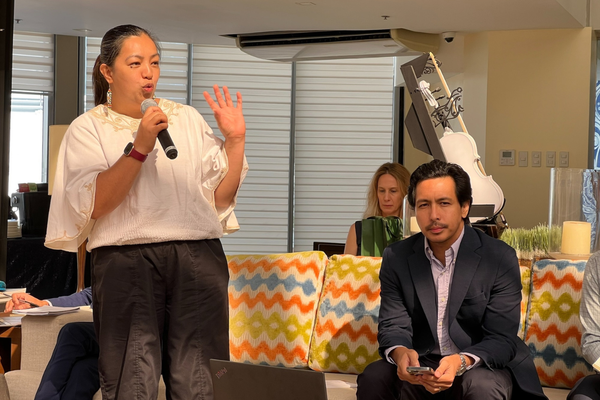What is COP?
21 October 2024 | 5 minute read

COP stands for Conference of the Parties. COP is a series of annual meetings where governments, NGOs, trade unions, businesses, and everyone else with any interest in climate change, biodiversity loss and land degradation meet to review and negotiate global action.
When were COPs established?
COPs were established as part of the ‘Rio Conventions’ at the 1992 Earth Summit in Rio de Janeiro. These are three sister conventions aimed at addressing challenges related to climate change, land degradation and biodiversity loss. The conventions are the:
- United Nations Framework Convention on Climate Change (UNFCCC)
- Convention on Biological Diversity (CBD),
- United Nations Convention to Combat Desertification (UNCCD)
Under each Convention, nations adopt key goals at annual or biannual COPs and report periodically on progress in implementing these goals. The inaugural COP to the Convention on Biological Diversity was held in Nassau, the Bahamas, from 28 November to 9 December 1994. The first COP to the UN Convention on Climate Change followed, taking place in Berlin, Germany, from 28 March to 7 April 1995. The first COP to the UN Convention to Combat Desertification was held in Rome, Italy, from 29 September - 10 October 1997.
During the UNFCCC’s COP28, 18 countries endorsed the COP28 Joint Statement on Climate, Nature, and People, acknowledging that the goals of the Paris Agreement or the 2030 goals and targets of the Kunming-Montreal Global Biodiversity Framework cannot be achieved without urgently addressing climate change, biodiversity loss and land degradation together in a coherent, synergetic and holistic manner. The parties committed to promoting a ‘whole society approach’ in planning and implementation of national climate, biodiversity and land restoration plans and to ensuring the full, equitable, inclusive and effective representation of indigenous peoples, local communities, women, girls, youth and other vulnerable communities.
What COPs are happening in 2024?
In 2024, the global community will convene at each Convention’s COP to confront the pressing challenges of climate change, biodiversity loss and land degradation. The upcoming conferences are the:
- 16th session of the Conference of the Parties (COP16) of the UN Biodiversity will be held on 21 October – 1 November 2024 in Cali, Colombia.
- 29th session of the Conference of the Parties (COP29) of the UN Climate Change will be held on 11 – 22 November 2024 in Baku, Azerbaijan.
- 16th session of Conference of the Parties (COP16) of the UNCCD will be held on 2 – 13 December 2024 in Riyadh, Saudi Arabia.
What do human rights have to do with COP?
The recognition of access to a clean, healthy, and sustainable environment as a fundamental human right emphasises the importance of preserving and protecting the environment for all. The extent to which human rights are prioritised in national, regional, and international strategies will play a significant role in determining whether the world is on a degenerative or regenerative path in responding to climate change, land degradation and biodiversity loss.
Human rights considerations are particularly relevant for safeguarding the rights of indigenous peoples, women, children, persons with disabilities, and other marginalized groups who are often the most impacted by environmental degradation. Some of the human rights issues to anticipate at the upcoming COP meetings are highlighted below.
What is COP16?
21 October – 1 November 2024 in Cali, Colombia.
The Convention on Biological Diversity (CBD) is currently in its 16th session of the Conference of the Parties. This will be the first COP since the adoption of the Kunming-Montreal Global Biodiversity Framework. The framework contains 23 targets for 2030 and 4 goals for 2050. Some of the human rights elements outlined in the framework include:
- The implementation of the Framework following a human rights-based approach, respecting, protecting, promoting and fulfilling human rights.
- How the framework implementation must ensure that the rights, knowledge, including traditional knowledge associated with biodiversity, innovations, worldviews, values and practices of Indigenous Peoples and local communities are respected, and documented and preserved with their free, prior and informed consent (FPIC), including through their full and effective participation in decision-making, in accordance with relevant national legislation, international instruments, including the United Nations Declaration on the Rights of Indigenous Peoples, and human rights law.
- Recognition and consideration of diverse value systems and concepts of nature, including, for those countries that recognize them, rights of nature and rights of Mother Earth, as being an integral part of its successful implementation
At the COP16 parties will present their updated National Biodiversity Strategies and Action Plans (NBSAPs) to demonstrate implementation of commitments under the Kunming-Montreal Framework, highlighting how these will embody human rights aspects and approaches outlined above.
What is COP29?
11 – 24 November 2024 in Baku, Azerbaijan.
The United Nations Framework Convention on Climate Change (UNFCCC) is currently in its 29th session of the Conference of the Parties. This year’s conference will be held in Baku, Azerbaijan to further unpack progress on the Paris Agreement - nations’ commitment to containing global warming within 1.5 degrees and leave no one behind.
Under the Paris Agreement, each country is expected to submit updated national plans every five years for limiting emissions and adapting to the impacts of climate change. Parties are required to submit new Nationally Determined Contributions (NDCs) in 2025, meaning most have been formulating their plans throughout 2024.
COP28, COP29 and COP30 presidencies established the Troika during COP28 – a mechanism “to significantly enhance international cooperation and the international enabling environment to stimulate ambition in the next round of nationally determined contributions, with a view to enhancing action and implementation over this critical decade and keeping 1.5°C within reach.”
In the lead up to COP29, the COP Presidencies Troika will host a series of high-level political convenings to assess key barriers to Nationally Determined Contributions (NDCs) development. The meetings will focus on the quantity and quality of support needed by Parties to ensure NDCs can deliver “1.5°C-aligned just climate transitions and be used by countries as investment
COP29 will serve as a platform to influence the development of these NDCs. This is clear in the priorities outlined by COP29 Presidency, which include:
- Raising ambition of the NDCs and National Adaptation plans to accelerate climate action
- Ensuring full operationalisation of the Loss and Damage fund to protect communities most impacted by the climate crisis
- Agreeing on a fair and ambitious New Collective Quantified Goal on climate finance (NCQG). This goal will seek to address the urgency scale of the problem while taking into account the needs and priorities of developing countries.
COP29 has been referred to as the ‘finance COP.’ Negotiations and discussions are anticipated to be geared towards mechanisms and ambitious actions to finance a ‘just’ climate transition. Operationalisation of the loss and damage fund, actionable plans on the Just Transition Work Programme, and progress on Just Energy Transition Partnerships (JETPs) are among the many topics of negotiation.
What is the UNCCD’s COP16?
2 – 13 December 2024 in Riyadh, Saudi Arabia.
The United Nations Convention to Combat Desertification (UNCCD) is currently in its 16th session of the Conference of the Parties and will take place in Riyadh, Saudi Arabia. The UNCCD’s 2018-2030 Strategic Framework provides a global commitment to achieve Land Degradation Neutrality (LDN) to restore the productivity of degraded land, improve livelihoods, and reduce the impacts of drought on vulnerable populations.
At COP16, countries will come together to consolidate commitments and actions to secure land rights, promote social and intergenerational equity and ensure that those who depend on land the most are an integral part of decision-making.
This page will be updated as more information becomes available.




